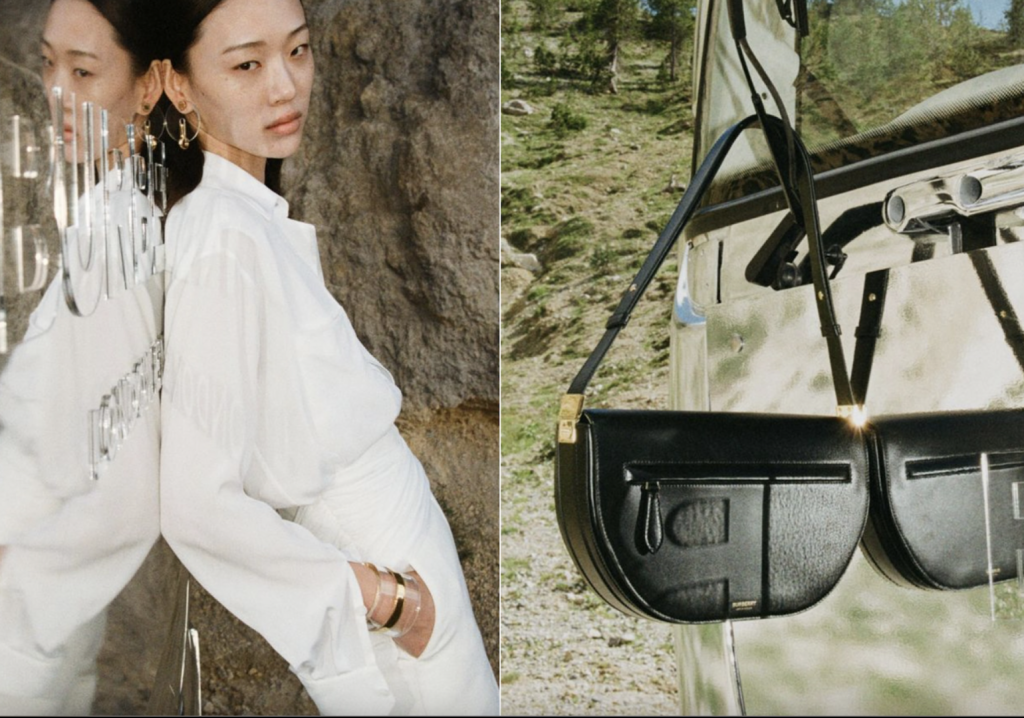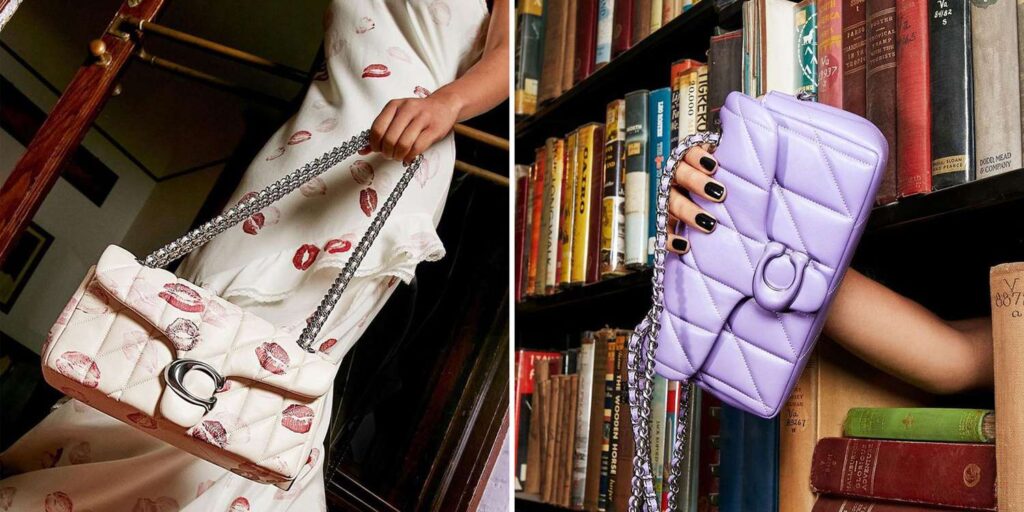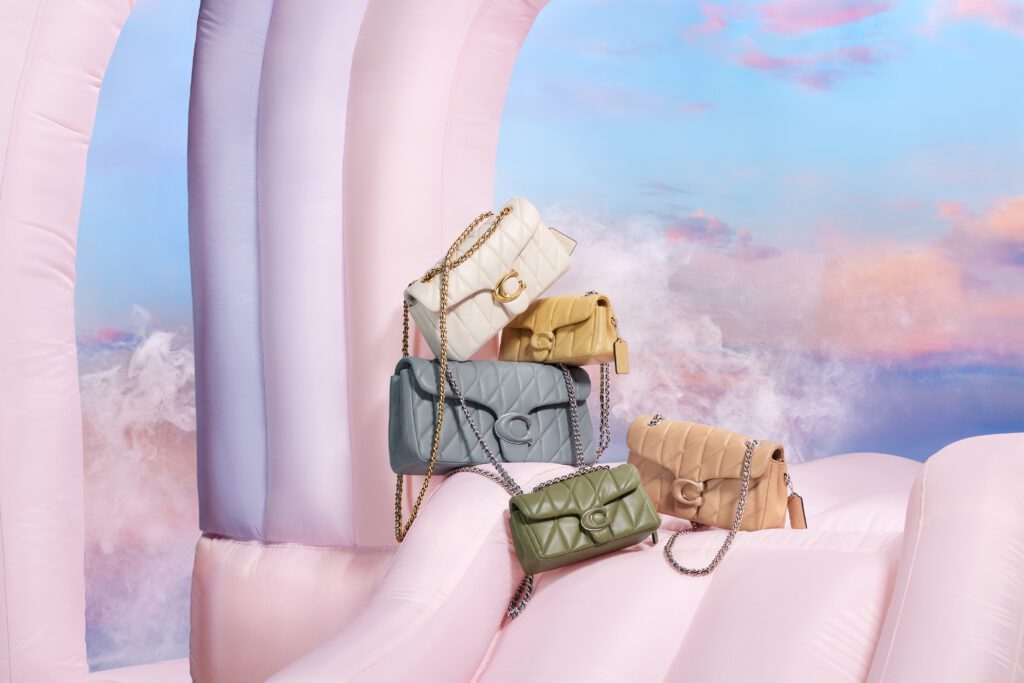Kicking off what is expected to be “a series of historic growth results in the coming days, as the luxury goods industry faces the easiest quarterly comparable from the COVID-19 pandemic,” Burberry and Richemont both reported boosted sales for the quarter on Friday, with the British brand touting sales of $662 million for the latest 3-month period (up 86 percent on a year-over-year basis), as younger consumers and demand for handbags, outerwear, and footwear helped to push revenue back above pre-pandemic levels. Meanwhile, Cartier owner Richemont has similarly rebounded, with sales growing by 129 percent to $5.19 billion. The Swiss group revealed that sales for the quarter were up by triple digits in “almost all regions, channels and business areas.”
In its report for the three months ending on June 30, Burberry asserted that it had “an excellent start to the new fiscal year,” with “full-price sales accelerat[ing] as collections and campaigns attracted new, younger luxury customers to the brand.” In particular, the 165-year-old brand revealed that it saw “strong growth across our strategic categories, in particular leather goods” – even despite price increases in this category in May – “and outerwear, and exited markdowns in digital and mainline stores,” with such sales slashing coming as part of departing CEO Marco Gobbetti’s several-years-long plan to move the brand move upmarket to better compete with the likes of Louis Vuitton, Gucci, and co. Sales of both full-price leather and outerwear more than doubled compared to the same quarter last year, per Burberry, while footwear saw “triple digit” growth.
As for its stores, Burberry said that it has “continued to roll out [a] new store concept that will transform how customers experience our brand and product in a uniquely British luxury setting,” while digital full-price sales more than doubled compared to the same quarter last year. And still yet, the brand noted that it has continued to engage in “digital innovation, including a collaboration with Mythical Games to launch our new TB monogram collection.” Burberry announced a tie-up with Mythical Games in June in furtherance of which the brand will debut limited-edition items including skins and accessories for the NFT-based video game startup’s game, Blankos Block Party.
In addition to boosting revenue, Burberry revealed in a conference call on Friday that the “quality” of those revenues is significantly different than just two years ago, a nod to the brand’s rise in full-price sell-throughs. For instance, full-price sales for the recent 3-month period accelerated by 121 percent compared to the same time last year. And despite pushback in China following comments related to related to Xinjiang cotton, Burberry saw strong growth in mainland China. As a while, sales in the Asia Pacific region were up by 27 percent “with continued strong growth in Mainland China and Korea.”
Finally, in the immediate wake of news that Gobbetti will step down from the CEO position at the end of the year, Burberry chief financial officer Julie Brown stated that creative director Riccardo Tisci is staying put. According to Brown, Tisci “remains very excited by the opportunity to continue to inspire our customers with his imprint on Burberry’s identity, reinforced by the response to his latest collection,” noting that the brand’s management is “very, very confident of Riccardo’s position.”
Elsewhere in the market, Richemont boasted a triple digit revenue rise, with the Group reporting sales for Q1 that are up by 129 percent at constant exchange rates, and noting “strong sequential improvement compared to the quarter that ended on March 31, 2021.” Compared Q1 in 2020, Richemont revealed that sales were up by triple digits in “almost all regions,” driven by what it calls an “outstanding performance of the Jewelry Maisons and the Specialist Watchmakers, with sales growth of 142 percent and 143 percent, respectively, at constant exchanges rates.”
Interestingly enough, Richemont – which recently announced that it acquired the entirety of Belgian leather goods maker Delvaux – found that while spending momentum continues in the Asia Pacific region, it did not boast the greatest performance in Q1. Instead, the Americas generated “the strongest regional performance” for the quarter, with sales increasing by 276 percent driven by strong local demand, followed by the Middle East and Africa with sales up by 154 percent.
Looking ahead, more growth is on the horizon for Richemont, according to Bernstein analyst Luca Solca, who sees a “high probability of organic growth strength” in the second half of the year, as “high jewelry is only now coming back, and it represents 20 percent of the Jewelry Maisons’ revenue,” and given that “watches are also rebounding later, as they depend on wholesale.”











